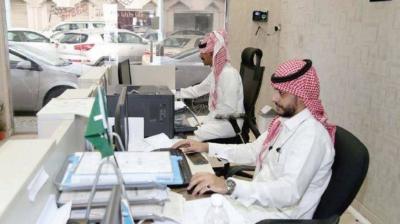Starting today, Sunday, the decision by Saudi Minister of Human Resources and Social Development, Ahmed bin Suleiman Al-Rajhi, to raise the minimum wage for calculating the salaries of Saudis in the private sector within the "Nitaqat" program from 3,000 SAR to 4,000 SAR will be implemented. The ministry launched the "Nitaqat" program as an initiative to assess establishments in Saudi Arabia based on the number of Saudi citizens employed in them, aiming to incentivize companies to localize jobs. Incentives for establishments with a higher percentage of national workforce have been in effect since November 26, 2014.
According to the decision, for a Saudi employee to be counted in the localization percentage within the "Nitaqat" program, their monthly salary must not be less than 4,000 SAR. The decision applies to all employees in the private sector, with their salaries subject to social insurance, regardless of specific categories.
According to a previous statement by the ministry, a Saudi employee earning 3,000 SAR will be counted as only half in the localization percentage within the "Nitaqat" program. A Saudi employee whose salary is less than 3,000 SAR will not be counted in the localization percentage.
The decision states that a Saudi employee earning more than 3,000 SAR but less than 4,000 SAR will be counted as half in the localization percentage within the "Nitaqat" program. Additionally, part-time workers will be counted as half a Saudi employee in the localization percentage for the entity they work for, provided they pay social insurance contributions, with a minimum monthly salary of 3,000 SAR, and they will not be counted in the localization percentage for more than two entities.
Employees under flexible work arrangements will be counted as one-third of a Saudi employee in the localization percentage for the entity they work for, on the condition that they complete a total of 168 working hours and pay social insurance contributions. This also considers the ministerial decisions related to flexible work, and includes Saudi students residing in the Kingdom who are regularly employed part-time, part-time employees in permanent positions, and those working under flexible work arrangements.




